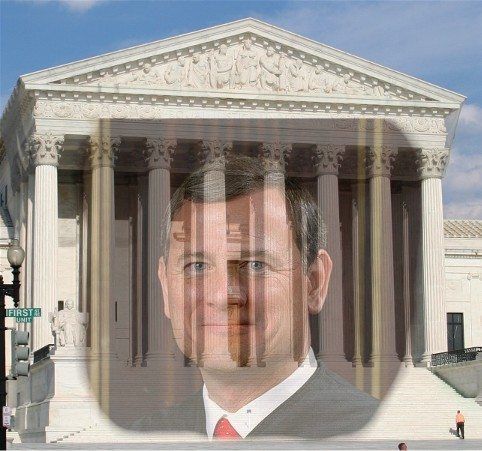Politics & Government
Justice Roberts Reconsidered

Right now former President George W. Bush, who appointed John Roberts as Chief Justice, must be having a Dwight Eisenhower moment.
When Eisenhower nominated California’s Republican governor Earl Warren to be the Chief Justice of the Supreme Court in 1953, he thought he was appointing a conservative jurist. Later, Eisenhower reportedly said that appointing Warren, who took the Court in an unprecedented liberal direction, was the “biggest damn fool mistake” he had ever made. (Warren is one of the people I profile in my new book, The 100 Greatest Americans of the 20th Century: A Social Justice Hall of Fame).
Chief Justice Roberts is a far cry from Earl Warren. Indeed, the Roberts court has been one of the most conservative in history.
But we can be grateful for Roberts’ decision to side with the 5-4 majority to uphold the Obama health care reform law. This is a big victory for progressive politics.
There will be many analyses of the Supreme Court’s ruling, including why Roberts sided with the majority. My own view is that Roberts was looking at history, and was concerned that future generations would look at the “Roberts Court” as simply a partisan, right-wing pro-corporate court, which it has been so far. Polls show that since Roberts became Chief Justice the American public has lost confidence in the Court. Perhaps he was tired of being seen as a clone of right-wing Justice Antonin Scalia, who wrote a wacko dissent attacking the majority ruling.
And perhaps Roberts was taken aback by Obama’s State of the Union attack on the Supreme Court for its outrageous Citizens United decision, which has unleashed a flood of billionaire and corporate money into the current election contests, hijacking democracy in the process.
Despite the Supreme Court ruling, the battle for health care reform isn’t over. Romney will continue to attack Obamacare — a remarkable act of hypocrisy given his role in pushing for a similar approach when he was Massachusetts governor. Republicans will run for Congress this year pledging to repeal Obamacare. Progressives and liberals will still need to mobilize support for the idea of universal health care.
We should learn some lessons from the 2009-2010 battle for health care reform, including the necessity of grassroots mobilization. Check out this provocative article about what’s needed now, written by Richard Kirsch, who led the grassroots movement for health care reform as head of Health Care for America Now.
And when it comes to health care policy, the best analyst is my friend John McDonough, former head of Massachusetts Health Care for All, former health policy advisor to Ted Kennedy, and now a professor at the Harvard School of Public Health. His column, Health Stew, is required reading, including today’s blog on the Supreme Court ruling.
(This post first appeared on Huffington Post.)

-

 Column - State of InequalityJanuary 22, 2026
Column - State of InequalityJanuary 22, 2026On Eve of Strike, Kaiser Nurses Sound Alarm on Patient Care
-

 The SlickJanuary 20, 2026
The SlickJanuary 20, 2026The Rio Grande Was Once an Inviting River. It’s Now a Militarized Border.
-

 Latest NewsJanuary 21, 2026
Latest NewsJanuary 21, 2026Honduran Grandfather Who Died in ICE Custody Told Family He’d Felt Ill For Weeks
-

 The SlickJanuary 19, 2026
The SlickJanuary 19, 2026Seven Years on, New Mexico Still Hasn’t Codified Governor’s Climate Goals
-

 Latest NewsJanuary 22, 2026
Latest NewsJanuary 22, 2026‘A Fraudulent Scheme’: New Mexico Sues Texas Oil Companies for Walking Away From Their Leaking Wells
-

 The SlickJanuary 23, 2026
The SlickJanuary 23, 2026Yes, the Energy Transition Is Coming. But ‘Probably Not’ in Our Lifetime.
-

 The SlickJanuary 27, 2026
The SlickJanuary 27, 2026The One Big Beautiful Prediction: The Energy Transition Is Still Alive
-

 Column - State of InequalityJanuary 29, 2026
Column - State of InequalityJanuary 29, 2026Are California’s Billionaires Crying Wolf?

